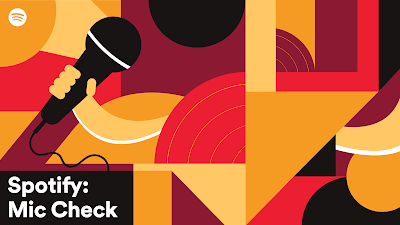Spotify's brand-new podcast “Mic Check” is a show "where musicians and podcasters from around the globe share stories and personal journeys in their own words, serve up exclusive recordings, and give listeners an intimate glimpse inside their worlds.
You can listen to the episode here.
The second episode of the newly launched series spotlights the hit Gimlet podcast “How to Save a Planet,” with an intimate one-on-one conversation between host Alex Blumberg and reporter Kendra Pierre-Louis.
The two discuss the motivation behind their podcast and how they are aiming to upend the intimidating manner that climate has traditionally been reported on; providing context on the news to help people understand the bigger picture; and… how sheep can be part of the solution to climate change.
Below are interview highlights in the episode:
Kendra Pierre-Louis on how “How to Save a Planet” helps people figure out how to contribute to change:
“I think that the way climate has been traditionally reported on is a very disempowering dynamic. You learn about what's happening to the planet or you learn about a potential bill. And then the takeaway is like ”go vote”, you know, in four years, right?
"Which is not something that most people will feel very satisfied when you hear about the scale of the problem. And so what the podcast fits in in that middle ground between, OK, I know a lot about the problem. And I know that I need to vote. What else can I do?”
“The hard thing about audio is that you always need a person to talk to. Every story you tell has to be tied to like an individual, somebody with some sort of personal story associated with it. That's what people relate to.
"You know, people relate to other people's stories. You can't like do graphs, you can't get like a big picture and sort of like carbon emissions. Where's it coming from? Which countries, you know, it's like hard to do that sort of thing.

Comments
Post a Comment
Thank You for your input and feedback. If you requested a response, we will do so as soon as possible.